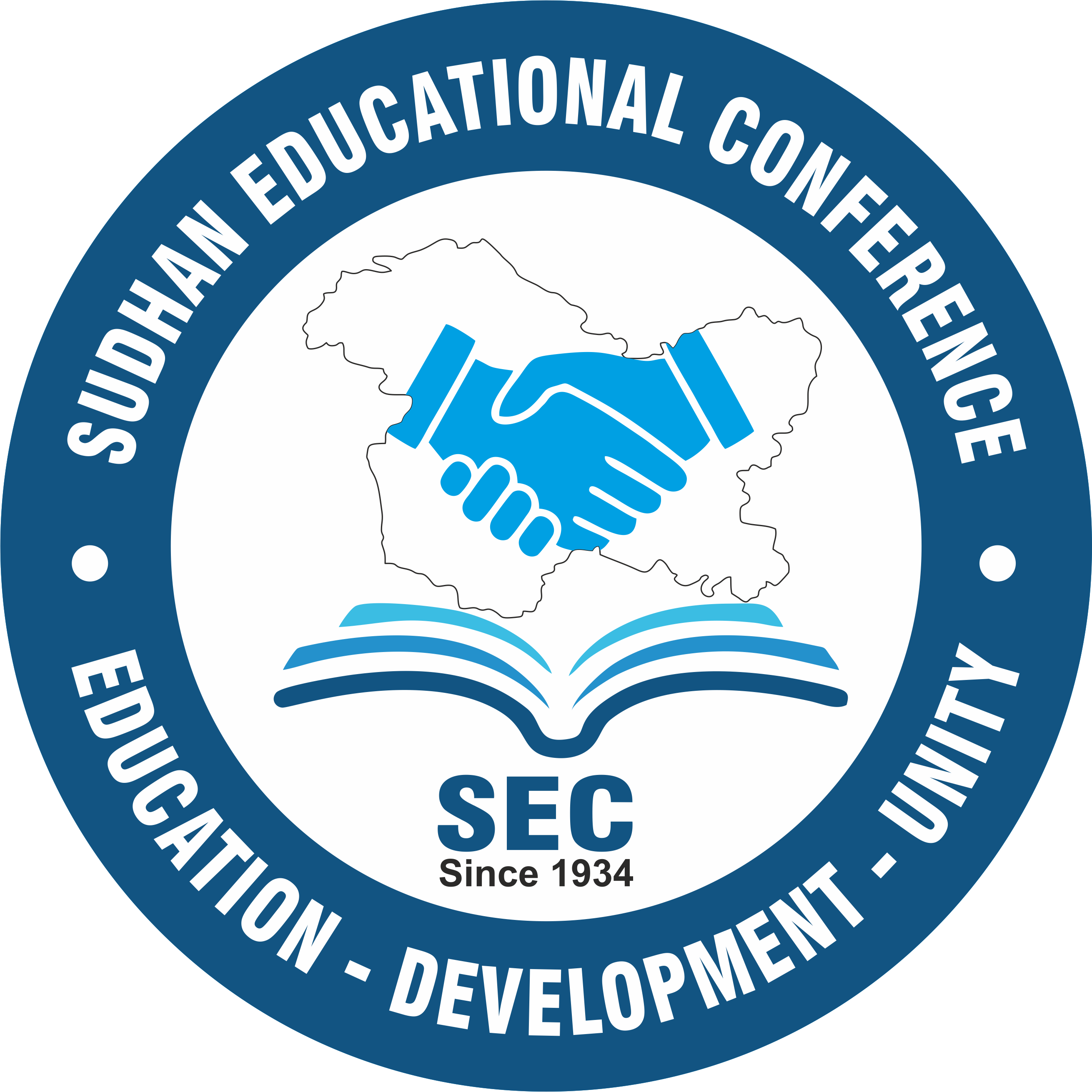Our Brief History
History
Our Brief History
The Sudhan Educational Conference (SEC) was established in 1934 in Poonch by an acclaimed visionary and social reformist Colonel Khan Mohammed Khan- IDSM, aka Khan Sahib. He was one of the first elected members of the Praja Sabha (People Assembly) (1934-1946) from the Sudhanoti and Bagh constituency of Poonch Jagir (fiefdom) of the State of Jammu and Kashmir.
The Sudhan Educational Conference is one of the first community development associations in Poonch that started its journey as a registered voluntary and community organisation in 1934. The SEC’s initial area of operation was Sudhnoti and Bagh, and people from all tribes, castes, and creeds were its members and beneficiaries.
The SEC started its social welfare and community development programmes by engaging men and women from all segments of society through a participatory community action scheme – the “Muthi Aata” (a handful of flour) scheme. This scheme consisted of keeping aside one handful of flour every time someone would make dough for bread in the household. Then on Fridays, they would donate it, and the household men would take the collected flour over the week to the SEC area/village collection points and then to the central collection centres. The donated flour was distributed to the poor or sold to generate funds. The funds generated were mainly used for the promotion of educational activities and other community development initiatives.
The “Muthi Aata” Scheme was a woman-led activity, empowering women and putting them at the forefront of the ‘development initiative’ started by the SEC over 88 years ago. Although the tradition of the “Muthi Aata” Scheme has faded, however, the spirit, vision, and mission are still alive in the community and among the members of the SEC worldwide. We strongly believe that sharing the “Muthi Aata” ethos and values underpin all our programmes, projects, and actions with people in need.
Join SEC UK today by completing the online form and becoming part of a community dedicated to creating sustainable economic and social benefits for local communities. Together, we can make a difference and build a brighter future.
Together, we can work towards achieving our vision and mission through four aims and sixteen objectives, which align with the United Nations Sustainable Development Goals (SDGs) 1, 2, 4, and 8 for eradicating poverty, ending hunger, ensuring quality education, and promoting decent work and economic growth.





